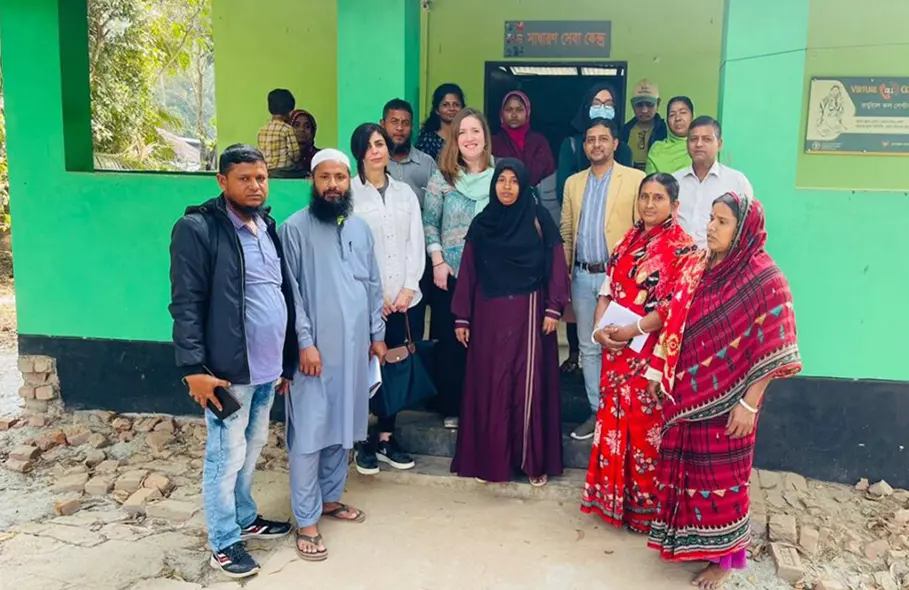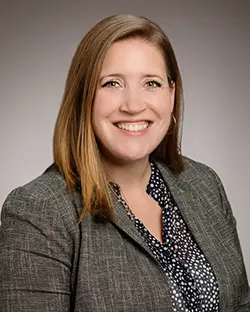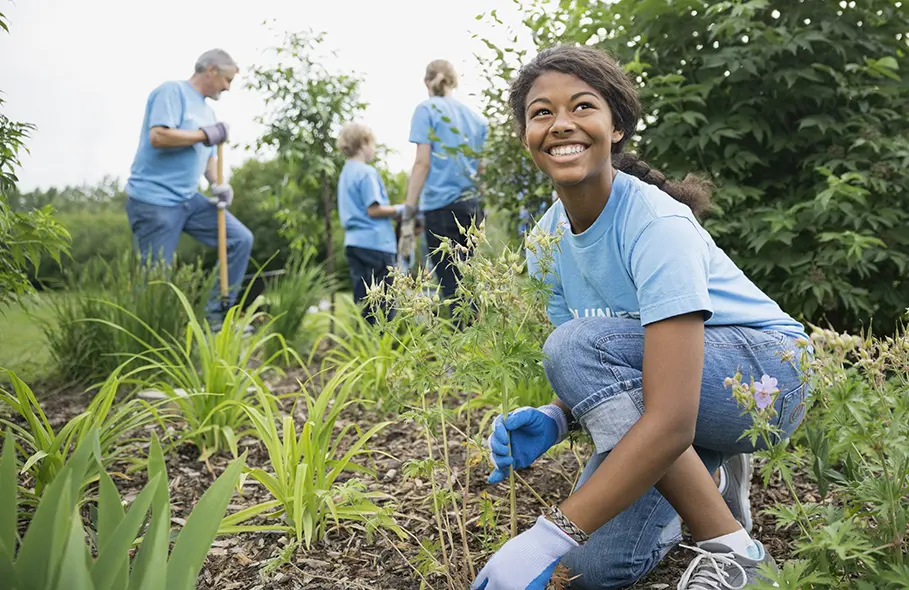Toward Women and Youth’s Adoption of and Access to Postharvest Mechanization and Entrepreneurial Models in Bangladesh
by Sam Lindgren, Ghaida Alrawashdeh, and Maria Jones / Apr 21, 2023

In observance of Earth Day (April 22) and in support of environmental protection worldwide, we share work being done by Samantha Lindgren, assistant professor in the Department of Education Policy, Organization and Leadership. Lindgren is an affiliated faculty member in the department of Agricultural and Biological Engineering in the College of ACES and the Technology Entrepreneurship Center in the Grainger College of Engineering, as well as the Women and Gender in Global Perspectives program.

Mechanization in agricultural production systems of all sizes is necessary for ensuring food security in Bangladesh and in other low- and middle-income countries. Changing climate, unpredictable monsoon seasons, and severe flooding have caused significant losses to Bangladesh’s recent rice yields. These climatic pressures, coupled with Bangladesh’s increasingly feminized agriculture sector, due to the migration of men to urban centers for employment, highlight the importance of women’s access to mechanization.
As part of our work with the Appropriate Scale Mechanization Consortium and our new ADM Cares project, we visited Bangladesh Agricultural University (BAU) in Mymensingh in February 2023. The BAU-STR dryer was developed and implemented by BAU faculty, and several women’s common interest groups, or farm collectives, are currently using the dryer to successfully reduce their postharvest losses. However, questions remain about women’s sustained use of the dryer and other agricultural machinery. For instance, while women make up 50% of the agricultural labor force and are given priority for applying for loans to purchase machinery, economic and socio-cultural constraints make it unrealistic for most women to take advantage of these credit programs on their own.
With our colleagues at BAU, Dr. Monjurul Alam, Dr. Chayan Kumer Saha, and Dr. Lavlu Mozumder, we conducted interviews and focus groups with 28 women from three farm collectives to better understand the gendered dynamics of agricultural machinery access and use in Bangladesh. These interviews revealed several observations.
Examining Agricultural Entrepreneurship
A key finding is that government programs that provide farmers groups free or heavily subsidized machinery have indeed been leveraged by women’s common interest groups.
To an extent, these groups function in an entrepreneurial capacity in which they charge non-members for usage of their machines. However, these government subsidies are not permanent, and thus a key question to be explored through this project is what types of entrepreneurial models can be sustained.
Female leaders of successful groups in Bangladesh are challenging social norms, empowering other women, and extending their group’s operations beyond agriculture to provide a variety of services including those in public health, digital education, and providing linkages with local markets. The women we interviewed stated that while education for girls is now equal to that of boys, this is new within the last decade. Many expressed a desire for more entrepreneurial training, financial planning, and access to ongoing support from extension services.
Adoption vs. Access
Although the leaders of these groups, and most of the women in the focus groups, recognized the importance of mechanization for their own livelihoods, few were interested in owning (outside of the collective) or operating the machines themselves, for a variety of social and cultural reasons. To ensure that women benefit from agricultural machinery, we need to re-conceptualize what we mean by adoption of mechanization. Benefits are also accrued through access to mechanization, which may be a more culturally appropriate way of envisioning the roles of female farmer collectives and associated entrepreneurial models. This will be a continued avenue of research moving forward.
While at BAU, we also had the pleasure of interacting with the ambassadors and members of the Smart Agro-Technology Innovation Youth Network (SAIYN). As innovation and entrepreneurship are increasingly seen as necessary to Bangladesh’s development of sustainable agriculture, developing students’ entrepreneurial mindsets has emerged as a focus at BAU. We participated in a seminar and gave the students a brief entrepreneurial mindset assessment, which is also used at the University of Illinois, as the first step in evaluating how this robust network encourages youth in Bangladesh to think about entrepreneurial opportunities.
We look forward to our ongoing collaboration with our colleagues and the students at BAU. The development of sustainable and culturally appropriate models of mechanization and entrepreneurship can promote the empowerment of women and youth in the agricultural sector – critical to food security in Bangladesh and around the world.
This story was originally published on the ADM Institute for the Prevention of Postharvest Loss website.
Samantha Lindgren is an assistant professor in the College of Education at Illinois.
Ghaida Alrawashdeh is a doctoral student in Global Studies in Education, College of Education at Illinois, and a PHL Scholar. Her research interests explore the intersection of technology and social impact.
Maria Jones is the Associate Director of the ADM Institute for the Prevention of Postharvest Loss at the University of Illinois Urbana-Champaign.
